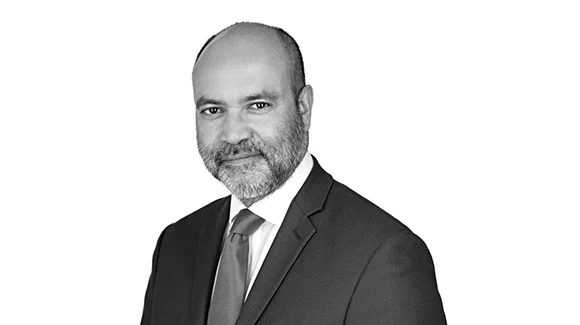What is your role at Newton?
I have worked within the BNY Mellon Investment Management group – now specifically at Newton – for virtually my entire career – about 25 years. While I am an active portfolio manager across a number of disciplines, a large part of my role is heading up the global equity income team and driving its research agenda and strategy.
What prompted you to go into investment management?
Initially, I wanted to be a doctor and became a pre-med at Syracuse University. About a year and a half in, I took an economics class as an elective. My economics professor taught the concept of dimensioning marginal returns, which I found fascinating, and I never returned to medicine. Anyway, I really do not like the sight of blood!
What do you like most about the investment management business?
I am naturally very curious, and investment management gives a great opportunity to learn new things every day about a wide range of companies, trends and global change. Whether it is researching Japanese rail businesses or gaining insights into the evolving landscape of European energy policy, there are an unlimited number of topics to learn about. This is an industry where you have to learn new things every day and be able to apply that knowledge to help clients achieve the outcomes they are trusting you to generate. I cannot imagine there is a more interesting job in the entire world.
What would you say are the strengths of Newton in global equity income investment?
Newton has such a long-standing global equity income franchise. Each of the managers on the strategy has been with the firm for more than 20 years and has a great deal of experience in managing global equity income strategies. This, coupled with the experience of the US, UK and Asian income managers who have also been managing money at the firm for a long period, point to a real strength in depth and breadth. Believe it or not, the person who trained me on my first day on the job in 1998 is still with our research team today.
How important is research to your investment efforts?
Very important. We harness expertise from across the breadth of our multidimensional research capabilities, working particularly closely with the equity research, data analytics and investigative research teams. I believe that combining a very disciplined investment process managed by a very long-tenured portfolio management team with our multidimensional platform can lead to steady and consistent client outcomes.
How would you characterise your style as a portfolio manager?
Value is a broad term, but I like to look in areas that are easy to dismiss. Great companies can be the worst possible investments if bought at the wrong price, in the same way that mediocre businesses can be amazing investments if purchased well. Most things have a price where they can be interesting, and sometimes the easiest things to dismiss at first glance for superficial reasons can turn out to be the best opportunities. These are often the least efficient areas of the market and can offer a pretty asymmetric return if you buy them right.
When assessing a company, what measures or qualities do you value the most?
If you look at all the businesses in the world and search for really amazing businesses run by really amazing management teams, you could probably count them on one hand. The fact is there are very few amazing businesses out there and, naturally, there tends to be a disproportionate focus on those few companies. From an investment perspective, I believe passionately that things are rarely ever quite as good or as bad as people perceive them to be. As such, mean reversion – the theory that businesses eventually revert to their long-term mean or average level – plays a huge role in my investment approach. The vast majority of businesses are generally good companies run by rational management teams, but often there are things going on in their business that can cause temporary dislocations in what people believe the business is worth. 99.5% of this job is behavioural, and having a consistent process in place, a deep and broad multidimensional research team and a cool head can allow you to generate value in arbitraging that behaviour.
What is the market outlook for global equity income?
When you are investing in income-generating equities, understanding the capital-allocation decisions being made by managers is key. We were in a low interest-rate environment for a long period of time, which enabled some extremely poor capital-allocation decisions that were not overly obvious given the backdrop. That has all changed. A higher cost of capital instils discipline on management teams and forces them to make much more rational decisions. Income managers are always focused on capital discipline and allocation. Now that we are in a more normal interest-rate environment, how companies allocate capital will matter a lot more. Differentiating those companies that are making sound capital-allocation decisions from those that are not will matter a lot more in the coming years.



